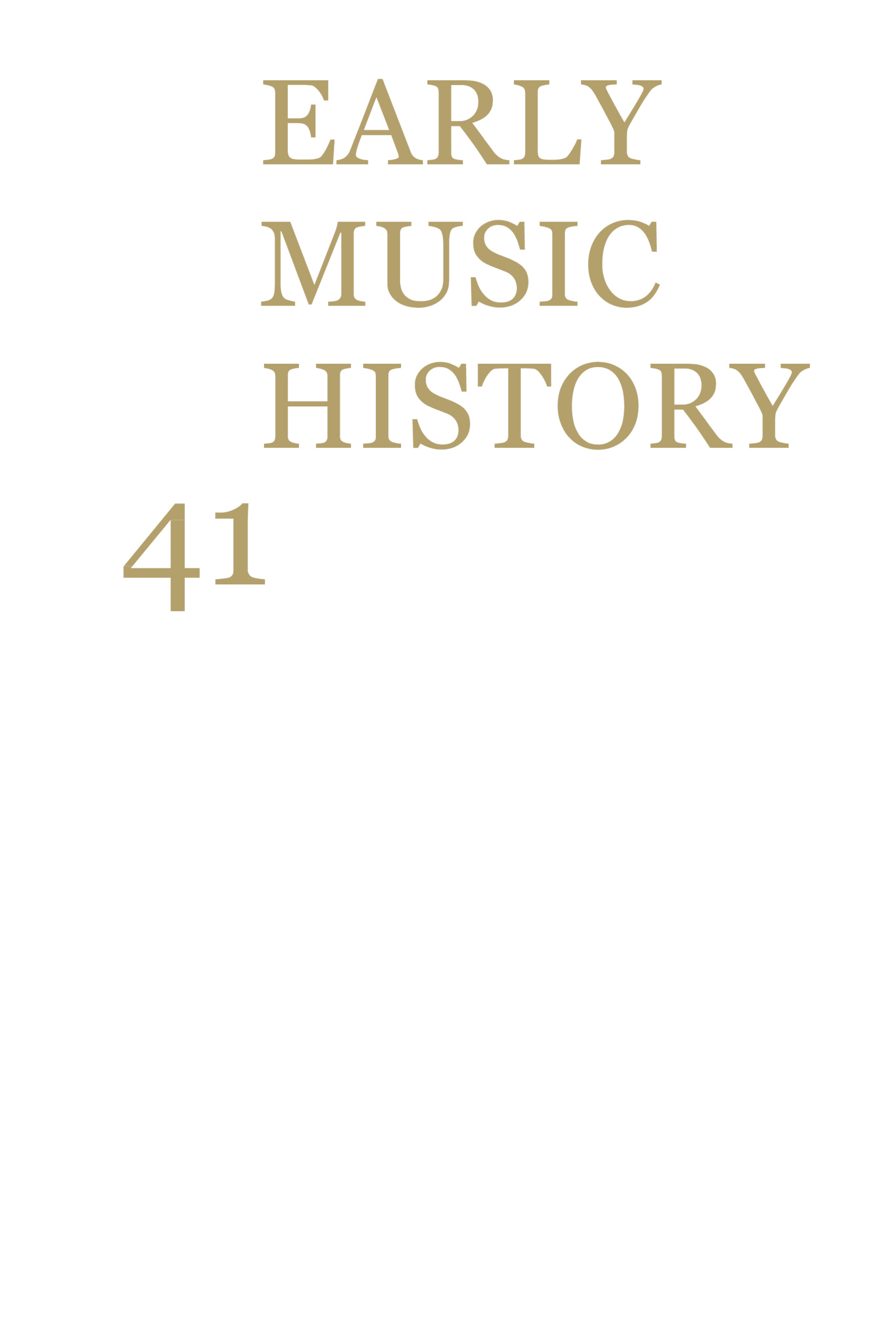Article contents
ENTÉ: A SURVEY AND REASSESSMENT OF THE TERM IN THIRTEENTH- AND FOURTEENTH-CENTURY MUSIC AND POETRY
Published online by Cambridge University Press: 01 September 2003
Extract
The medieval term enté, meaning ‘grafted’, has a long and varied history in musicological study. It is usually held to refer to the practice of grafting a refrain (whether text or melody or both) onto a longer work, such as a motet voice. For modern scholars its chief importance lies in its association with the thirteenth-century motet: it has been discussed principally in its role as a classificatory term, where it occurs as a rubric in several medieval manuscript lyric collections, and is also mentioned (in Latin) in a well-known passage from the musical treatise De musica (c.1300) by Johannes de Grocheio. After a period of settled usage in the work of such scholars as Friedrich Ludwig, Friedrich Gennrich and Yvonne Rokseth, the term has been freshly examined by Mark Everist, and the settled usage declared incorrect. Everist’s stimulating revisionary argument has ensured that we cannot continue to use the term without care. It seems appropriate to consider the implications of his case more fully, and take the opportunity to reassess the term in the light of his arguments. In particular, since he proposes that a motet enté is characterized by a specifically musical technique, his work raises the issue of how far in that case we are to understand grafting as a textual procedure. This essay attempts two kinds of assessment: one, a revisiting of the term in relation to the motet; and the other, a wider, historical look at the term in poetic as well as musical contexts.
- Type
- Research Article
- Information
- Copyright
- © Cambridge University Press
- 8
- Cited by




